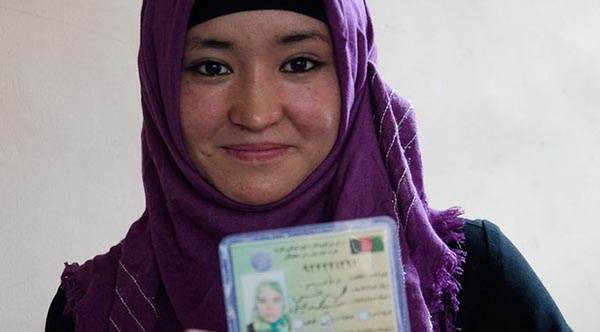As Afghans prepare to choose their next President in the coming election their confidence and enthusiasm in the country's electoral process is increasing day by day. Despite escalating violence and a constant threat by the Taliban. Afghanistan is set to hold historical elections this week. Although some say the vote won't be completely fair, but its certain it will be more credible than the 2009 poll, according to some election analysts. A new survey released this week indicated that a large number of Afghans are eager to take part in the upcoming watershed presidential (and provincial council) elections which will obviously result in higher voter turnout in recent election. However, Afghans are well-aware of what their nation needs, and it is they who will decide what kind of leadership they want for Afghanistan. It is best not to tell them what to do or whom to vote for. But one thing has to kept in mind that Afghanistan's political system is something of a hybrid nature a mix of modern democracy and ancient tribal custom. The democratic process has to to cater to both modern and the traditional elements in his nation's society for integration. That does not discount the delicacy of this particular election for the future of the country it won’t be an exaggerated statement to make that this election will decide the fate of Afghanistan.
This election has created a hope for the masses that Afghanistan can also emerge as the healthy democracy. Hope for Afghanistan lies in the very fact that the practices of discourses and debates which were previously unheard off are becoming a common thing among citizens. The televised presidential debates, where candidates running for office shared the same stage and addressed Afghans on their positions over several pressing issues, are a sign of healthy progress. That’s altogether is a good sign for Afghan democracy which still is in its infancy stage. As far as democracy as a concept is concerned, a lot of evolution still remains to be achieved in Afghanistan. While of course the basic principles will remain the same, eventually, the ideology of democracy will take on a unique tailor-made character for the country, as it does in most cases.
The election comes at a time when many indicators of progress in Afghanistan are positive. The capabilities of its security forces have been steadily improving. GDP has grown about 9% annually since 2002. About 10.5 million Afghans are enrolled in schools, 40% of them girls. 60% of Afghans have access to health facilities. There are 16 million subscribers to four mobile phone companies. The country has 50 TV stations. At last count, 472,000 Afghans were on Facebook. The challenges are still profound, including poverty, corruption, drug trafficking and women’s rights. And Afghanistan’s future security is endangered by Karzai’s refusal to sign an agreement under which NATO, including US, forces could continue past 2014 to assist the Afghan security forces with training and logistical support. All Presidential candidates say they will sign it, but until that happens Afghans will have less confidence in their future than otherwise. The success of the elections on April 5 will be of critical significance in reinforcing the country's institutional, economical, and political stability and instilling confidence in the future. The future of Afghanistan depends on a complex interaction of three critical factors. Or to say it in different words to judge whether Afghanistan will be able to preserve the gains of the past 12 years or face chaos and instability will largely depend on three factors which are. First credible and transparent presidential and provincial elections, second the ability of the Afghan National Security Forces (ANSF) to protect the country from terrorists and insurgents, and third and last will be whether Afghanistan receives sufficient and effective economic and military aid beyond 2014 based on meeting anti-corruption and human-rights benchmarks. But the first factor of credible and transparent election is most important ingredient for the peaceful and stable Afghanistan. Afghanistan has already come a long way in the journey which it started 13 years ago after the fall of Taliban regime. There has been remarkable progress and positive momentum, but I will emphasize on the fact that gains are fragile as they are constantly challenged by the insurgents.
This positive momentum of Afghan society can be protected by the strong Democracy which can only be achieved by the fair and creditable elections. If the coming election is seen by the Afghan people to be free and fair, it will be a huge step forward in the establishment of a new and stable government. If not, Afghanistan could once again descend into political chaos, greatly complicating its security, stability and economic progress. Afghanistan’s long-term stability will be best achieved through a peaceful transfer of power to a new president with authority recognised broadly by Afghans. So it will right to say that these elections will be very crucial one for the future of 30 million Afghans.

